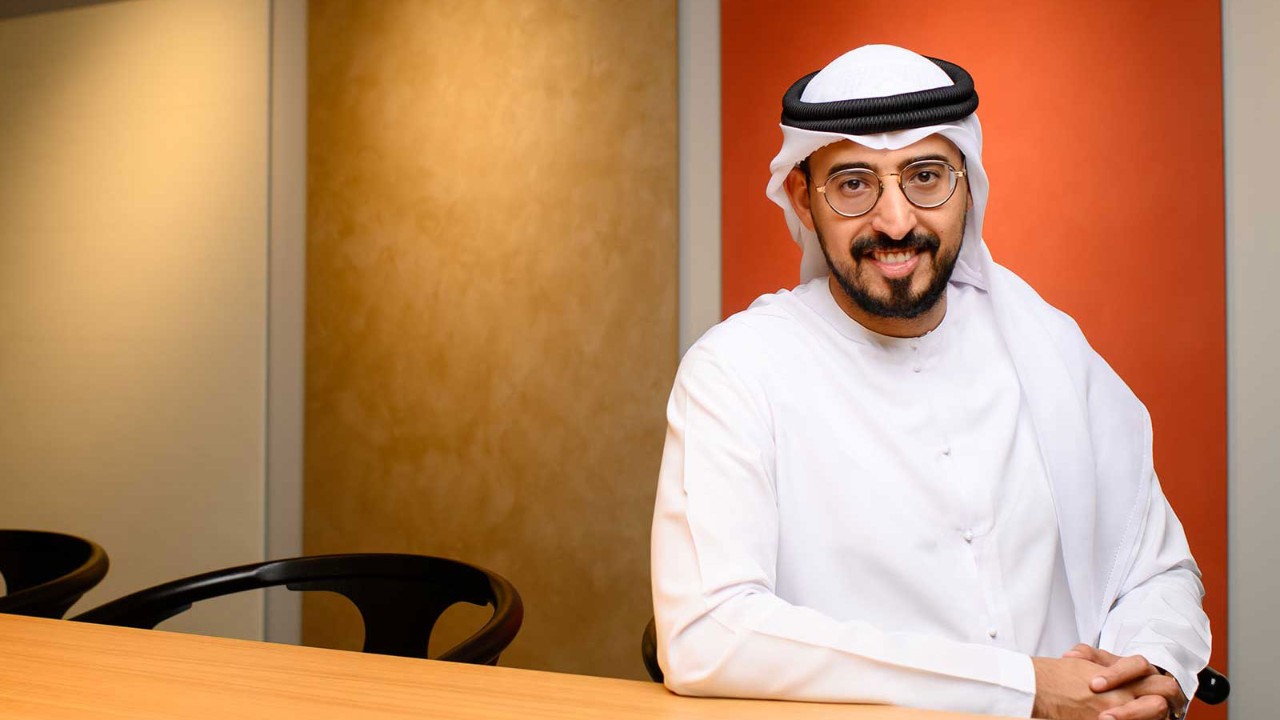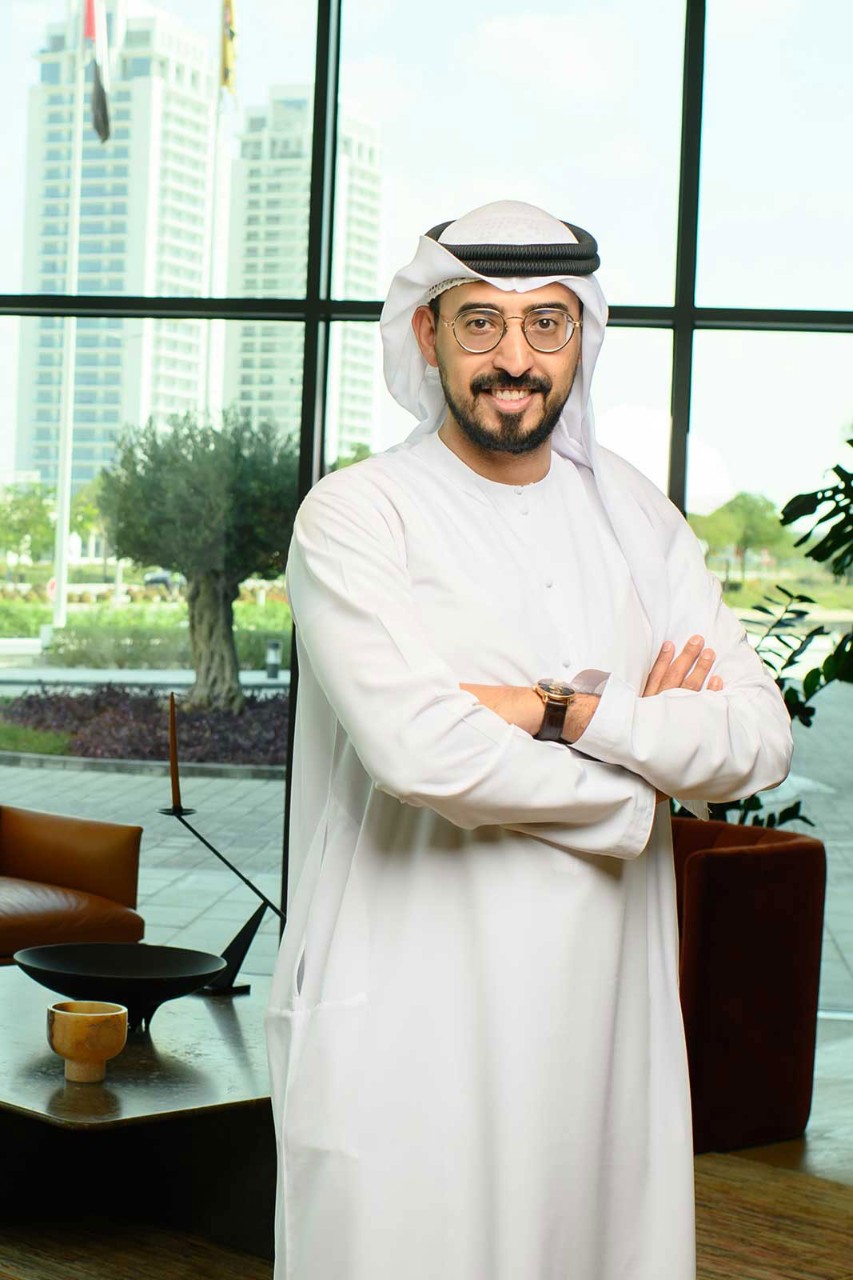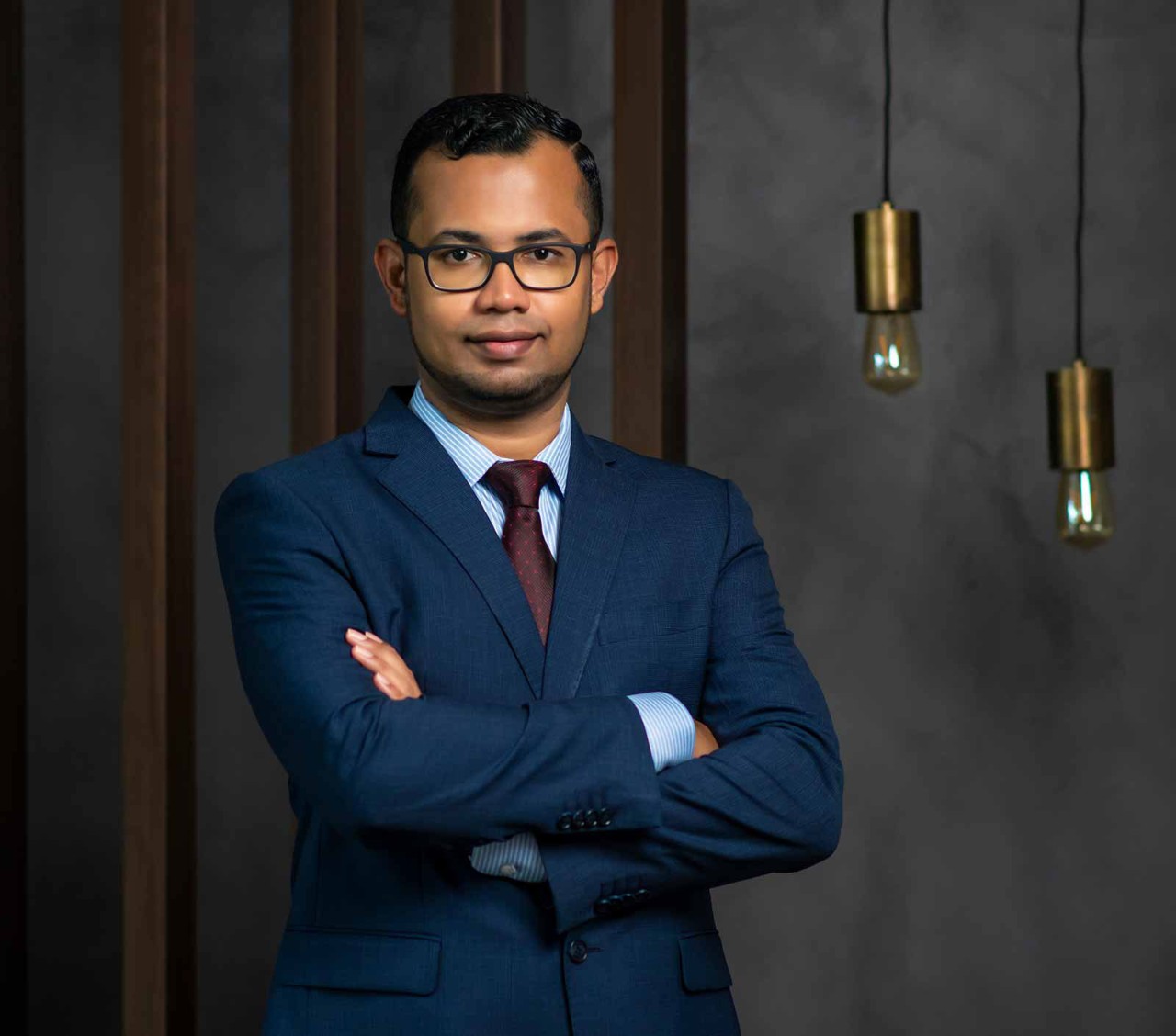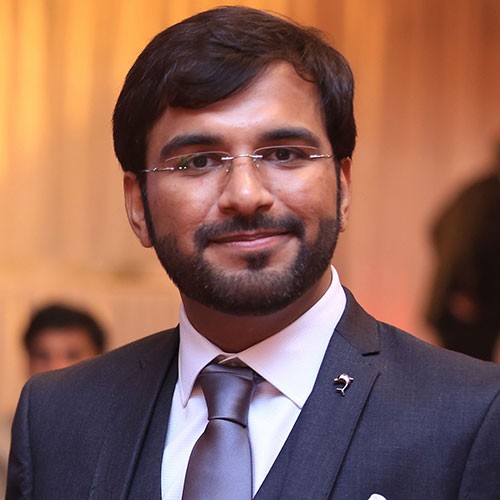
You almost certainly will not have realised it, but if you have visited such landmarks as the Eiffel Tower in Paris, the Burj Khalifa in Dubai or the Louvre Abu Dhabi, you will have been admiring work that Ibrahim AlShami FCCA has contributed largely to. While the regional finance director for the Middle East, India and Africa (MEIA) at Jotun, one of the world’s leading manufacturers of paints and coatings, may not have painted these cultural icons himself, he plays a significant role in the company’s success.
‘Being successful as a finance professional is all about effective communication and building relationships,’ he says. ‘You need to be able to influence management and people you work with, using your strong financial knowledge; and you need to be able to deliver that knowledge to people who don’t always understand much of finance in a smart, clear and simple way so that they are able to make informed decisions.’
‘We were able to build a factory and a fully fledged team’
He adds: ‘Finance is not just about the numbers; it entails a holistic assessment of the company, considering its future outlook and the resources, time and influence necessary for growth and the development of a forward-thinking strategy. It sometimes involves taking a step back while remaining actively engaged in day-to-day operations. For me, it’s akin to owning a business; I treat it as such.’
Think like a penguin
AlShami’s personal ethos chimes with Jotun’s ‘Penguin Spirit’ – a system of values that harks back to the Norwegian company’s origins almost a century ago as a manufacturer of paint for whaling fleets travelling to Antarctica, based around loyalty, care, respect and boldness.
‘We live those values and see them in our daily work,’ he says, ‘not just within Jotun, but in our interactions with our community, our customers, partners, shareholders and other stakeholders’.
Jotun’s core values combined with its long-term strategy for investment and organic growth, its segmented structure and its sustainability focus to provide firm foundations for growth, AlShami believes. ‘Without this approach, I don’t think we would have been able to achieve what we have.’
CV
2023
Regional finance director, Middle East, India and Africa, Jotun, Dubai, UAE
2021
Finance manager, Jotun, Egypt
2017
Joined Jotun as regional finance executive, rising through various roles, Dubai
2014
Associate auditor, then auditor, Deloitte Middle East
One personal triumph which stands out for AlShami was his role in a recent investment in the MEIA region, the Jotun Ethiopia paint manufacturing plant, which began operations in 2021. ‘We were able to build a factory and a fully fledged team,’ he says. A team of experienced employees went into Ethiopia initially to establish critical start-up roles before locals were recruited. ‘At the end of the day, those are the people who are running the company,’ says AlShami. ‘I feel as if we have all achieved something important.’
Early challenges
After putting aspirations to become a professional footballer to one side while he studied for a business management degree, AlShami discovered another passion: ‘I love numbers and figures,’ he says. ‘I decided to finish my degree and then find out how I could get into finance as a career.’
‘In a country where seniority and age are very important, I learned a lot about how to communicate effectively’

Within a decade, AlShami had gained the ACCA qualification and become an FCCA. After starting his career in audit with Deloitte Middle East, he joined Jotun in 2017 as a regional finance executive in Dubai.
Before taking up his current role, AlShami spent three years leading the finance and IT department for Jotun’s Egypt operations, which includes its largest production facility in the Middle East. ‘Egypt is a dynamic and complex market where I faced different challenges every day,’ he says. One challenge stemmed from his relative youth; then aged 29, he was the youngest finance manager, with much older people reporting to him. ‘In a country where seniority and age are very important, this was not always an easy situation – it was all about how to communicate effectively,’ he recalls. ‘The experience shaped me as a person.’
In all, he says, his time in Egypt was such a positive experience that he’d happily relocate again. ‘I’d go anywhere there is a good opportunity and where I can add value.’ But, he adds, convincing his wife might be trickier next time: ‘There are additional factors I’d have to consider now, because I have two kids.’
Steady growth
His stint in Egypt also helped to equip him for his current role as the youngest of Jotun’s five regional FDs. With a wide-ranging remit, his day-to-day diary is shaped by calendar-driven financial reporting events, such as the year-end and financial statement audits; strategic direction plans and planning around ongoing initiatives and major investments and their potential impact on the future growth of the business; as well as twice-yearly performance reviews and board meetings, which can involve travel to around 17 entities across the MEIA region.
Jotun MEIA
200+
Employees at Dubai regional HQ, including 17 finance staff
3,000+
Employees across 13 countries of operation, including 200 in finance, out of a group total of 10,000 staff
4
Segments: decorative paints, protective coatings, marine coatings and powders
14
Manufacturing sites and factories
NOK5,767m (US$537m)
2023 operating revenue – up from NOK4,929m in 2022
‘MEIA is a region with lots of growth opportunities’
The Jotun group has grown steadily over the years. It reported record sales and earnings for the 2023 year-end (with operating profits up 72%), building on strong 2022 results and aided by robust performance in the MEIA region, which outperformed others in two of the four Jotun segments: decorative paints, marine coatings, protective coatings and powder coatings.
AlShami shares some insights into why. ‘MEIA is a region where there are lots of growth opportunities, not only in the countries of the Gulf Cooperation Council but also in Africa,’ he says. Jotun entered the region earlier than many competitors and was able to gain market share. ‘That’s one of the main drivers behind our success.’ So, too, are the company’s clear strategy, structure and corporate culture.
‘We are very patient in our markets,’ says AlShami. The board recognises that decisions taken today may not pay off immediately, so Jotun sticks to its long-term investment strategy and grows organically. ‘Our strategic direction stays firm: we don’t acquire companies, we don’t merge, and we don’t explore openings outside our four segments,’ says AlShami.
Unsurprisingly, AlShami is happy where he is. With a team of 200 finance people across MEIA, providing opportunities for his staff to develop themselves is an aspect of his role that he values greatly: ‘I love my job and the fact that I can influence and make a real impact,’ he says. ‘That matters to me.’


